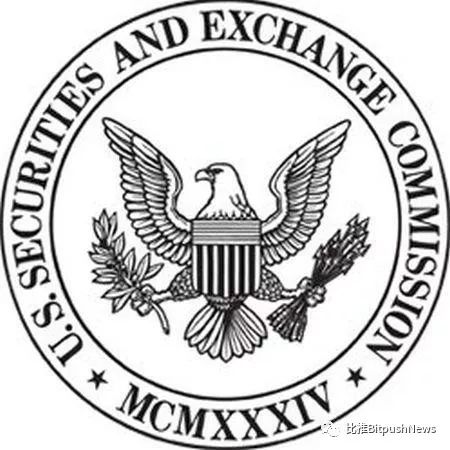U.S. SEC Commissioner Hester Peirce proposes 3 year grace period for legal crypto projects
Author: Liang CHE
Source: Tweet bitpush.news
Hester Peirce, a member of the United States Securities and Exchange Commission (SEC), officially proposed a three-year grace period for legitimate crypto projects without violating US securities laws.

- Japanese officials: it is difficult to deal with China's central bank digital currency without US help
- Everything you need to know about Ethereum 2.0 in 2020
- Blockchain technology wars God of Plague, "Material traceability, electronic invoice, logistics tracking, payment"
According to Coindesk, Peirce proposes that cryptocurrency startups can have a three-year grace period from the start of ICO sales to passing the SEC's securities assessment, which will allow crypto startups to develop their networks and networks without fear of regulatory restrictions community.
She made the proposal in a speech at the Chicago International Blockchain Conference on Thursday. To date, the SEC has taken enforcement actions against many companies that created and sold tokens, including two major messaging platforms, Telegram and Kik.
"The analysis of whether tokens are issued or sold as securities is not static," she said. That is, some tokens appear to be securities in nature when they are issued, but they no longer have the attributes of securities when they mature.
Ethereum is one such example. SEC's financial director William Hinman has personally stated that Ethereum is not a security. SEC Chairman Jay Clayton has since stated that digital assets may no longer be investment contracts at some point.
EOS has undergone a similar evolution. The SEC reached a settlement with the company that issued the cryptocurrency last year, stating that the original ERC-20 EOS token was a security, but the final EOS token was not.
Peirce has also proposed this "safe harbor" in the past, but Thursday's proposal was the first formal attempt to make it a reality. If accepted by most other members of the SEC, it will impose a strict set of requirements for crypto projects to raise funds through token sales, including personal disclosure, code disclosure, announcements, and many other factors.
Peirce said, "Safe Harbor also aims to protect token purchasers by requiring that the information that is disclosed be tailored to the needs of purchasers, and retaining anti-fraud provisions in federal securities laws."
Specifically, the proposal defines the concepts of "initial development team" and "network maturity."
The "initial development team" will be responsible for the development of the first three years of the network. The development team should disclose the "name and relevant experience, qualifications and skills" of each member, and how many tokens each member holds and how much How much to earn with rewards or similar programs.
In the proposal, "The definition of network maturity is intended to provide clear information about when token transactions should not be treated as securities transactions, but as always, analysis will need to assess specific facts and circumstances."
At the end of the grace period, the initial development team will have to determine whether the token transaction constitutes a securities transaction. Based on the development work, the team should create liquidity for the tokens through the secondary trading market.
Peirce also said that in the "safe harbor", secondary transactions are considered necessary, not only to hold the tokens in the hands of people who will use the tokens, but also to provide a way for developers and people who provide network services. A way to exchange tokens for fiat or cryptocurrencies. In addition, she also requested that the source code of the project, transaction history, token economics, roadmap, and past token sales history be disclosed on a free and publicly accessible website.
Reprint must indicate the source.
Disclaimer: All articles of Bibei represent the views of the author and do not constitute investment advice. Investment has risks and consequences.
We will continue to update Blocking; if you have any questions or suggestions, please contact us!
Was this article helpful?
93 out of 132 found this helpful
Related articles
- The possibility of the Federal Reserve issuing coins has greatly increased, the director talked about Libra, digital RMB and stablecoin
- Full analysis of decentralized storage track core projects: Filecoin, Storj and Arweave
- 2019 Global Blockchain Investment and Financing Report: The number of global blockchain field financings is 543, with a financing amount of 23.83 billion yuan
- Fidelity leads investment, blockchain settlement company Clear secures $ 13 million in Series A financing
- Intercontinental Exchange ICE acquires software service provider Bridge2, ready to launch applications for Bakkt
- SIM card exchange attacks stolen coins, how can Bitcoin practitioners protect themselves?
- Under the epidemic, blockchain is expected to make up for shortcomings in social online operations




